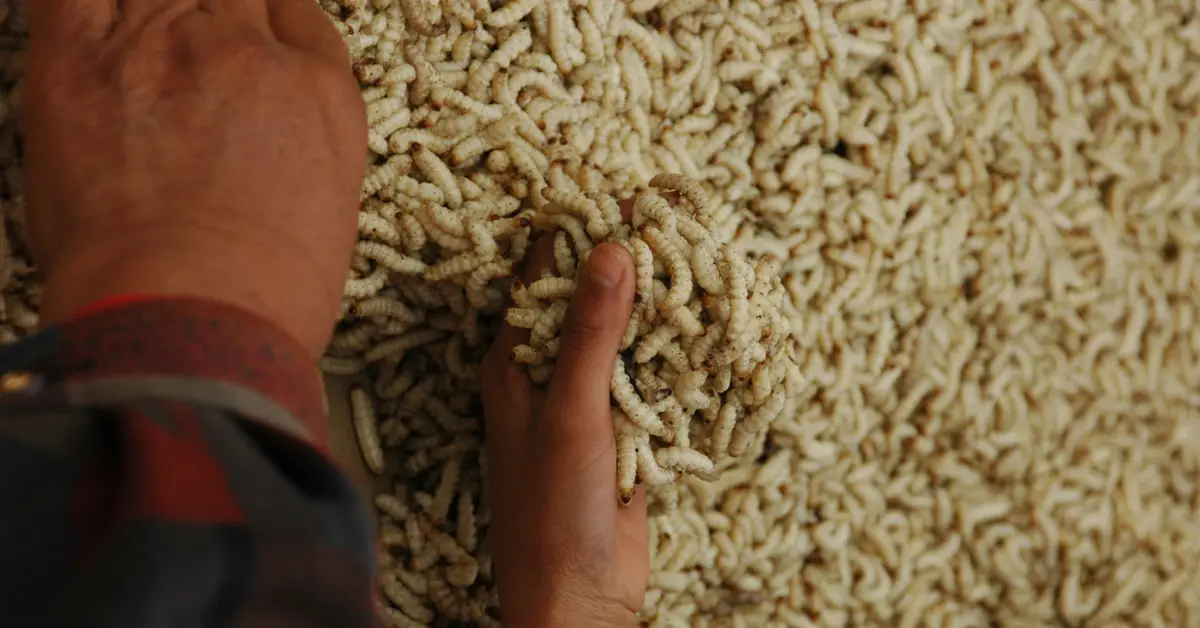
Jeffery Jago is a expert in horticulture and worm breeding. With a background in plant cultivation
Last Updated on April 12, 2023 by Jeffery Jago
As a avid composter, I know firsthand how pesky maggots can be. These creepy crawlies are the larvae of flies and are commonly found in garbage bins and bags you haven’t had a chance to compost yet.
One of the common questions I often get is whether maggots can eat through plastic garbage bags. In this article, I’ll share with you some interesting facts about maggots and how they can find their way into sealed bags.
The short answer is no, maggots cannot eat through plastic garbage bags. Plastic bags are made of polyethylene, which is a type of polymer that maggots cannot digest.
While they may crawl over the surface of the bag, they are unable to penetrate or break through it.
It’s also worth noting that there are some types of plastics that maggots may be able to digest, such as biodegradable or compostable plastics.
While these types of plastics are designed to break down more easily than traditional plastics, they can still take a significant amount of time to decompose, and may still attract flies and other pests.

So How Do Maggots Get Into Sealed Garbage Bags?
Although maggots cannot eat through plastic garbage bags, they can still invade sealed bags. This often happens because garbage bags are not very durable and can easily get punctured by sharp edges of the trash they carry.
Flies take advantage of these holes to lay their eggs, which eventually hatch into maggots.
Flies can also lay their eggs on organic material, such as food waste, before it is placed in the garbage bag. If the garbage bag is not tightly sealed, the maggots can crawl out and spread around the area.
Preventing Maggots in Garbage Bags:
To prevent maggots from infesting your garbage bags, it is important to tie them tightly and ensure there are no holes or openings.
You can also store food waste in a separate container with a tight-fitting lid before placing it in the garbage bag if you intend on composting it later. Regularly cleaning your garbage bin and keeping it dry can also help deter flies and maggots.
Can I Still Put Maggot Covered Food In My Compost Bin?
Maggots are often found in compost bins, as they are attracted to the organic matter inside. However, seeing maggot-covered food can be a bit alarming and make you wonder if it’s safe to add to your compost.
The answer is yes, you can still add maggot-covered food to your compost bin. In fact, maggots are actually beneficial to the composting process as they help break down organic matter into rich, nutrient-dense soil.
In a traditional compost pile, it’s important to ensure that your compost bin is working properly and is hot enough to kill any harmful bacteria or pathogens that may be present in the maggots or their waste.
To do this, your compost pile should be at least 3 feet in diameter and 3 feet high, and the internal temperature should be above 140°F for several days.
For vermicomposting bins, the temperature isn’t as important as they tend not to get nearly as hot as traditional composts.
It’s also important to note that adding too much maggot-covered food to your compost bin can attract more flies and lead to an infestation.
To avoid this, you should bury the maggot-covered food under several inches of dry leaves, grass clippings, or other carbon-rich materials to discourage flies and keep your compost pile balanced.
Use The Maggots For Something Else
Maggots are often viewed as an unwanted pest, but they can actually be a valuable source of protein and nutrients for certain animals instead of just chucking them into the compost.
If you have chickens or other poultry, maggots can be a great source of extra protein. Chickens love to eat maggots, and they can help supplement their diet and promote healthy growth.
You can simply collect the maggots from your compost bin or bag and feed them to your chickens as a tasty and nutritious treat.
In addition to chickens, other animals such as fish and reptiles can also benefit from a diet that includes maggots.
For example, some fish species, such as trout, are known to feed on aquatic insects and larvae, which includes maggots. Maggots can also be a nutritious food source for pets such as reptiles or hedgehogs.
So if you have a pond, You could collect the maggots and toss them in and let your pond fish have at em’.


